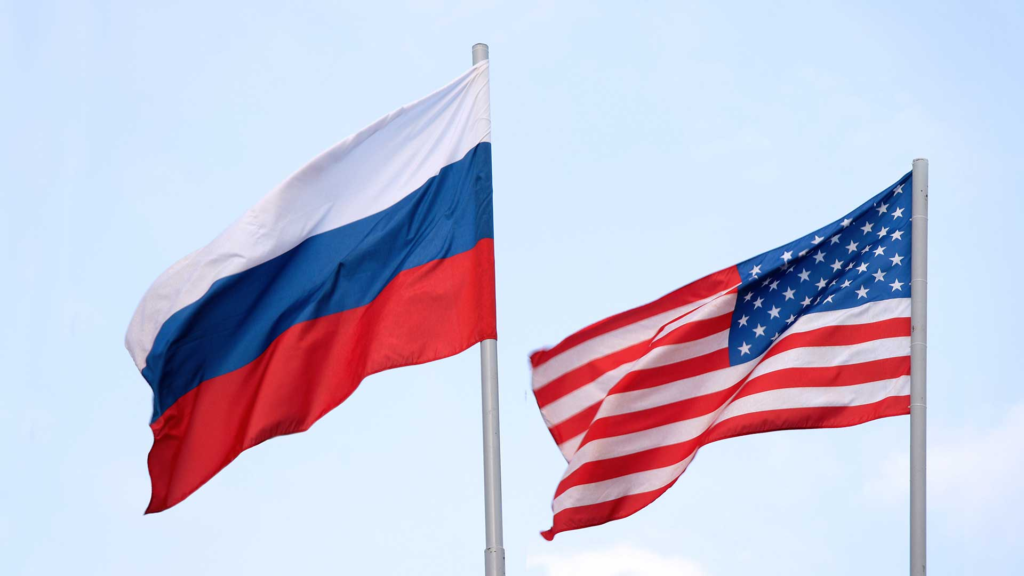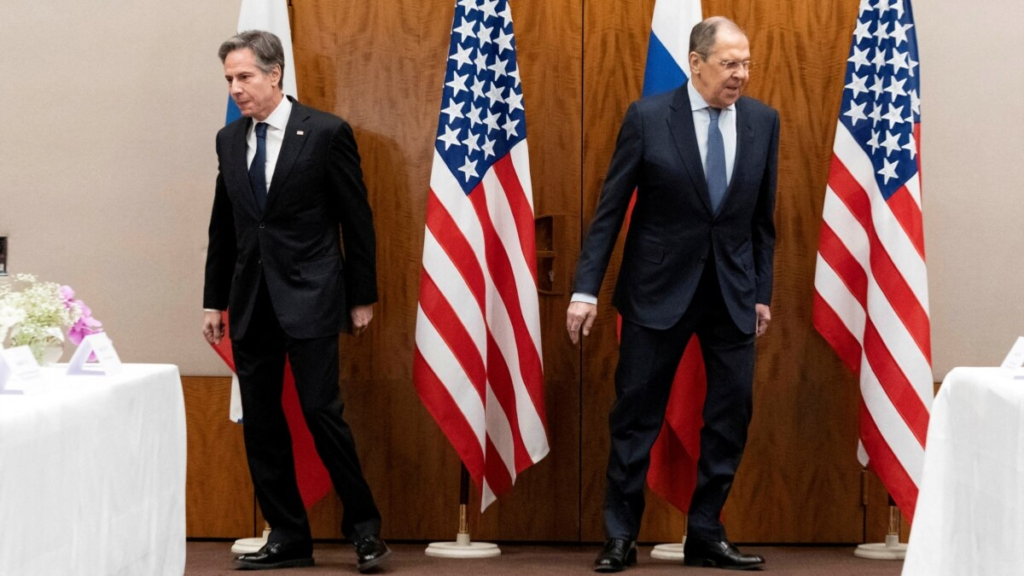U.S.–Russia diplomatic relations have become increasingly tense due to the ongoing war in Ukraine. This conflict has not only altered how these two powerful nations communicate but has also impacted global diplomacy and shifted alliances worldwide. This article explores recent summits between the U.S. and Russia, how the Ukraine war has affected their bilateral ties, and how other countries are responding to these developments.
Recent Summits: Dialogue Amid Rising Tensions
Over the last year, several important summits have taken place to address the strained U.S.–Russia diplomatic relations. These meetings are crucial as they provide opportunities to negotiate and potentially ease tensions, despite the deep divisions caused by the conflict in Ukraine.
One notable summit was held in Saudi Arabia, where U.S. and Russian diplomats met to discuss peace prospects in Ukraine. This meeting marked one of the most sustained diplomatic engagements between the two nations since the war escalated. Although there was agreement to establish a team to explore peace and future economic cooperation, many challenges remained due to differing goals and mistrust.
In the United States, a multilateral meeting involving European leaders was held to discuss security guarantees for Ukraine. This event reflected concerns that talks directly between the U.S. and Russia might overlook Ukraine’s interests. European nations have stressed that Ukraine’s voice must be included in any negotiations that determine its future.
Additionally, European countries such as the UK, France, and Germany have organized their own summits focused on strengthening Ukraine’s position and ensuring that peace agreements include meaningful security guarantees.
While these summits represent efforts to engage diplomatically, obstacles such as disagreements over negotiation participants and conflicting demands have made progress difficult.

Impact of the Ukraine War on U.S.–Russia Relations
The war in Ukraine has significantly reshaped the relationship between the U.S. and Russia on multiple fronts—military, economic, political, and diplomatic.
Breakdown of Trust and Growing Tensions
The war has caused a severe breakdown of trust. The U.S. views Russia’s military actions, including drone and missile attacks on Ukrainian infrastructure and civilian areas, as a threat not only to Ukraine but also to broader European security. The potential for spillover effects into NATO countries has heightened U.S. concerns.
Diplomatic exchanges between Washington and Moscow have become increasingly hostile. Each side accuses the other of violating international norms and engaging in aggressive behavior. The U.S. and its allies condemn Russia’s strikes on civilian targets, while Russia demands that NATO halt its eastward expansion and reduce military presence near Russian borders.
Sanctions and Economic Isolation
In response to Russia’s actions in Ukraine, the U.S., together with European allies, has imposed extensive sanctions targeting Russian businesses, individuals, and industries. These sanctions aim to limit Russia’s ability to finance its military campaign.
As a result, Russia has been forced to pivot its economic and diplomatic relations toward countries in Asia, the Middle East, and other regions less aligned with the West. This economic reorientation helps Russia mitigate the impact of Western sanctions but also deepens the divide between Russia and Western nations.
Complicated Peace Negotiations
Efforts to negotiate a peace settlement have faced significant hurdles. Ukraine demands the full restoration of its territory and sovereignty, while Russia insists on security guarantees and territorial gains. These opposing goals make a diplomatic resolution very challenging.
U.S. policy has also seen shifts. While some leaders advocate for strong sanctions and continued military support for Ukraine, others emphasize diplomacy and potential de-escalation strategies. This internal variability adds another layer of complexity to U.S.–Russia relations.
Responses from Global Actors
The strained relationship between the U.S. and Russia and the war in Ukraine have triggered various reactions from the international community.
European Union and NATO Allies
European countries have largely sided with Ukraine, providing military aid, financial support, and humanitarian assistance. They insist that Ukraine must be part of any peace negotiations, arguing that excluding Ukraine would undermine its sovereignty.
However, some European governments express concerns about the reliability of U.S. commitments. Shifts in U.S. foreign policy depending on domestic politics have prompted calls for Europe to increase its strategic independence in defense and foreign policy.
Ukraine’s Position
Ukraine strongly opposes any diplomatic talks that exclude it. Ukrainian leaders view their participation as essential to protecting the country’s interests and ensuring any peace deal respects their sovereignty.
Meanwhile, Ukraine continues to seek military assistance from the U.S. and other allies, particularly for air defense systems, long-range weapons, and security guarantees.
Russia’s Approach
Russia maintains that its security concerns, including NATO’s expansion and Western military presence near its borders, must be addressed. Russia portrays itself as responding defensively to Western provocations.
In addition to its confrontations with the West, Russia has sought to deepen relations with countries outside the Western alliance, such as those in Asia and the Middle East, to counteract sanctions and diplomatic isolation.
Neutral and Nonaligned Countries
Many countries in Asia, Africa, and Latin America have taken a neutral stance, neither fully supporting the U.S. nor Russia. These nations often call for peace, ceasefires, and diplomatic solutions without directly condemning Russia.
Their main focus is on ending the conflict to prevent broader instability and protect global trade and diplomatic ties.
International Organizations
International bodies such as the United Nations play a critical role in addressing the crisis by passing resolutions, coordinating humanitarian aid, and providing forums for dialogue. Financial institutions help enforce sanctions and restrict Russia’s access to international finance.

Challenges Ahead in U.S.–Russia Relations
Several major challenges stand in the way of improving U.S.–Russia diplomatic relations.
First, the goals of the two countries and Ukraine itself are vastly different. Ukraine demands full recovery of its territory and sovereignty, while Russia seeks security assurances and territorial control. Bridging this gap will be difficult.
Second, domestic politics in both countries limit diplomatic flexibility. U.S. leaders face pressure from Congress, the public, and allies, while Russian officials must maintain support within their political and security establishments.
Third, the way the world views these two nations affects diplomacy. Russia is widely seen as the aggressor by Western countries, while the U.S. must balance support for Ukraine with concerns about escalating the conflict.
Fourth, there is a real risk of escalation through military incidents or accidents, which could further destabilize the region and complicate relations.
Finally, who participates in negotiations remains a critical issue. Ukraine insists on full inclusion, and its allies demand no peace agreement without Ukraine’s consent, which complicates direct U.S.–Russia talks.
Potential Paths Forward
Despite these obstacles, several steps could help improve or stabilize U.S.–Russia relations.
A structured peace process involving all key parties, including Ukraine and European allies, would ensure greater legitimacy and fairness in negotiations.
Confidence-building measures, such as ceasefires, prisoner exchanges, and humanitarian corridors, could help reduce immediate tensions and build trust.
Clear security guarantees for Ukraine would be essential, but these must respect Ukraine’s sovereignty while addressing Russia’s security concerns.
Engagement by neutral mediators, such as countries in the Middle East or international organizations, might help bridge gaps if trusted by all sides.
Finally, exploring limited economic cooperation in areas like trade and energy, if politically feasible, could reduce Russia’s isolation and encourage diplomatic progress.
Conclusion
U.S.–Russia diplomatic relations face unprecedented strain due to the Ukraine war. The conflict has reshaped how these two nations interact and influenced global diplomacy. While summit diplomacy and negotiations offer some hope, fundamental differences, domestic politics, and the need to include Ukraine make progress challenging.
The global community watches closely, with European allies backing Ukraine, neutral states calling for peace, and international organizations providing platforms for dialogue. The future of U.S.–Russia relations will depend on whether diplomacy can balance security, sovereignty, and justice to achieve lasting peace.
Do Follow USA Glory On Instagram
Read Next – Americans Prioritizing Immigration More Than a Year Ago






